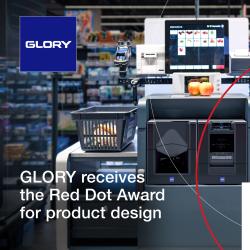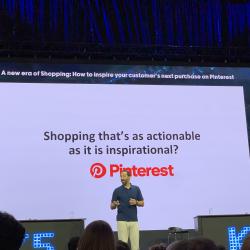Report • 03.02.2014
Retail Is More Innovative Than Ever Before
An article by Michael Gerling, Managing Director of the EHI Retail Institute
The global retail industry is currently facing some of the biggest challenges in decades. Radical changes in consumer buying behavior, rapid technological change, which enormously influences both the internal processes in companies as well as the sales approach, the advancing globalization of the industry and the emergence of all new types of distribution demand a high degree of entrepreneurship, creativity and innovativeness from retail to be able to also successfully stand its ground in the market in the future.
The structure of the retail landscape is going to drastically change in many countries: especially the saturated markets in Europe, North America and East Asia will experience reduction in sales areas; the number of stores is going to decline. Commercial enterprises with a long-standing tradition that missed adapting to the changing market conditions over the past few years will disappear from the market.
Manufacturers will turn into retailers
At the same time, there are new players that emerge in online and brick-and-mortar businesses and score with innovative product choices, new store concepts, but also with new business models. During the past few years, more and more industrial companies have been seen investing in their own retail businesses. This trend will continue in the fashion industry in particular and further intensify competition.
Online retail – challenge and opportunity
That said online retail certainly presents the biggest challenge for the retail market. This marks a change in the industry, which we have not experienced to this degree since the introduction of the self-service concept in the year 1938 in Germany. What initially seemed to be a fad at the end of the 90s has now become a global constant in retail. The percentage of online sales increases drastically all over the world; double-digit growth is common. In national economies with little growth in the overall commercial market, the online retail market share is more or less at 10 percent.
The 1,000 largest online stores in Germany produced net sales of 29.5 billion Euros in 2012. This amounts to a 16.1 percent increase compared to 2011, after the market grew by 12 percent in each of the two previous years. This equates to a total market share of approximately 8 percent.
The top ten online stores with the highest sales in Germany produce 32.8 percent of sales volume of the top 1,000 (32.0 percent in the prior year); the 100 shops with the highest sales generate 62.7 percent (64.4 percent in the prior year) and the 500 top selling shops 85.5 percent (87.3 percent in the previous year). The growth in sales is currently primarily driven by pure online retailers and traditional mail order companies, though companies with their origin in the brick-and-mortar sector are also making progress in online retail.
Customers want great service and look for a great shopping experience
Rapidly changing consumer buying behavior and the increasing significance of the online channel have an immense impact on the sales floor design. Tomorrow’s consumer needs additional incentives to walk into a store and actually shop there. This is why store staging will become more and more important in many industry sectors.
At the same time, service, advice and face-to-face contact with the customer are becoming major distinguishing features compared to pure online shopping. The integration of technology in the store design, for instance in the form of virtual dressing rooms and the use of mobile technologies such as iPads for sales support play an important role in this.
The retail industry has identified the trends and invests heavily
All this can already be seen today in the industry sector’s investments. The level of investment in the brick-and-mortar business has clearly increased over the past few years and has reached record highs at this point. In 2013, Germany’s retail sector will invest approximately 6.8 billion Euros in the extension, renovation and new construction of businesses; that’s 700 million Euros more than in 2009.
This year alone, companies invest approximately 1.75 billion Euros to set up new businesses, which is 350 million Euros more than in the 2009-reference year (+25 percent). 950 million Euros (+ 17.1 percent compared to 2009) apply to non-food retailing; approximately 800 million Euros (+ 37 percent compared to 2009) are allotted to the food trade.
Approximately 50 percent of companies register an increased cross-sector need for investments per store compared to 2009. Setup costs per square meter have significantly increased since 2009 in almost all industry sectors; this is especially apparent in food trade (supermarkets + 6.5 percent; large-scale retail trade + 27 percent) and in the textile industry, shoe and sports trade (+ 14 percent).
The renovation cycles of companies in all industry sectors have also shortened on average from 9 to 7.8 years. Depending on the industry sector, the renovation cycle acceleration lies between 10 and 15 percent. Due to competition from new suppliers on the Internet, sales areas are clearly being upgraded, while the necessary capital also increases much to the delight of shopfitters everywhere. The increase in investments for store furnishings is of course also driven by energy efficiency measures, by new lighting systems and – in the case of food trade – by ever more and different cooling options.
Online retailers are also successful with their own stores
With the variety of product choices, tomorrow’s customer expects to freely choose his/her shopping channel – the lines between brick-and-mortar business, online and mobile retail are increasingly blurred. Many companies see investments in the integration and connection of the different channels as one of the biggest technical and organizational challenges in the upcoming years.
Last year, 49.5 percent of online stores also operated one or more brick-and-mortar businesses. That number was still 45 percent two years prior and the percentage is constantly increasing. Sales floors are more and more complemented by special areas for the pickup or return of items ordered on the Internet. Click & Collect shopping is catching on and is gradually going to change the face of companies.
Design and technology – the best retail examples
The increasing quality in store design is also apparent by this year’s participation in the EuroShop Retail Design Award. A global team of experts nominated 83 companies from 30 countries for this award, and the jury is going to have a tough job choosing the three winners from this high-caliber list of nominees. The award ceremony is going to take place on the evening of February 16 at the Capitol Theater in Düsseldorf.
Definitely another highlight is the Retail Technology Awards Europe on the evening of February 17, since retail is more innovative than ever before from a technical point of view. Whether it’s interactive dressing rooms or shop windows, mobile payments, electronic sales receipts or scanning with your own cell phone –real innovations from all over Europe will once again be among the winners.
The EuroShop is a big opportunity for brick-and-mortar retailers to find ideas that make shopping in the store more appealing and more convenient for customers, while retailers can also examine the necessary tools for tomorrow’s online retail at the EuroCIS. This is why the EuroShop is a true multi-channel trade fair and caters to the most important trend in the industry.
The percentage of brick-and-mortar retailers in the online sector continues to increase
With an average annual growth rate of online retail of 10 percent, sales volumes of the 1,000 largest online stores in Germany in the year 2025 will be at approximately 100 billion Euros. If the retail industry overall grows by just 1 percent each year during this period, the online retail market share will be at about 24 percent.
These are dramatic changes. However, brick-and-mortar retailers are going to expand their percentage of online retail over the coming years and they are going to do great business with great stores 10 years from now.
This is why EuroShop 2014 comes just at the right time: it presents itself in a bigger, more versatile and creative way than ever before in its long history and is going to be a valuable source of inspiration for many companies on their way to a successful future!
The EHI Retail Institute is a research, educational and service institute with nearly 60 associates servicing the retail industry and its partners. The international EHI network includes approximately 700 member companies from the retail, consumer goods and capital goods industry sectors. The company was founded in 1951. Michael Gerling is the current Managing Director. GS1 Germany, a subsidiary owned in equal parts by the EHI and the German Brand Association, coordinates European article number (EAN) assignments in Germany. In cooperation with the EHI, Messe Düsseldorf presents EuroShop, the world’s leading trade fair for retail investments and EuroCIS, where the latest products, solutions and trends in IT and safety engineering are introduced.
channels: retail, consulting








